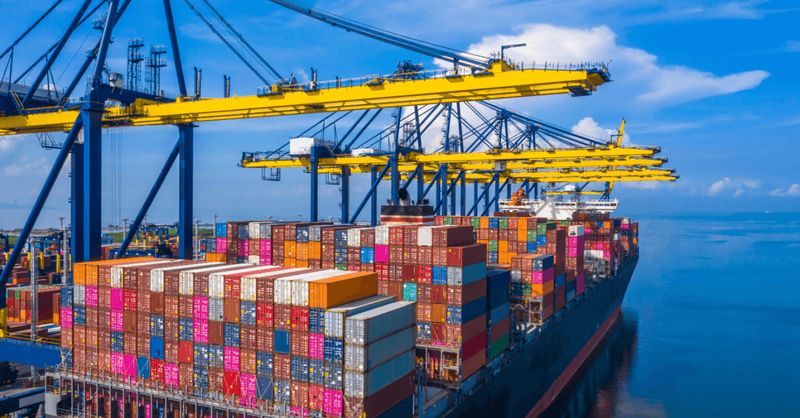In the dynamic and complex world of logistics, effective risk management is not just beneficial; it's imperative. The global supply chain is fraught with uncertainties ranging from natural disasters and geopolitical tensions to economic fluctuations and operational disruptions. Each of these poses a potential threat to the seamless flow of goods and services across the supply chain network. This article explores the importance of risk management in logistics, key strategies for managing risks, and highlights successful practices by YK Freight in mitigating these challenges.
Importance of Risk Management
Risk management in logistics serves as a critical framework to anticipate, assess, and mitigate potential threats that could disrupt operations and impact organizational goals. By proactively identifying risks and developing strategies to manage them, logistics companies can safeguard their supply chains from unexpected disruptions. This not only enhances operational resilience but also ensures continuity in delivering goods and services to customers worldwide.
Key Risk Management Strategies
Effective risk management in logistics involves a structured approach that encompasses several key strategies:
Risk Identification
The first step in risk management is identifying potential risks. This involves thoroughly analyzing the entire supply chain and identifying vulnerabilities. Risks can stem from various sources such as:
- Natural Disasters: Earthquakes, hurricanes, floods, etc.
- Man-made Disruptions: Strikes, terrorism, cyber-attacks, etc.
- Operational Issues: Equipment failures, supplier delays, quality issues, etc.
- Market Fluctuations: Currency fluctuations, economic downturns, etc.
- Regulatory Changes: Tariff changes, trade regulations, environmental policies, etc.
Risk Assessment and Analysis
Once risks are identified, the next step is to assess and analyze them based on their likelihood and potential impact. This involves:
- Quantitative Analysis: Using statistical methods to assess probabilities.
- Qualitative Analysis: Expert judgment and scenario planning to evaluate impacts.
- Risk Mapping: Visual representation of risks and their interdependencies.
Response Planning
After assessing risks, logistics companies develop response plans tailored to each identified risk. Strategies may include:
- Risk Avoidance: Changing routes or suppliers to avoid high-risk areas.
- Risk Reduction: Implementing redundancies, improving infrastructure, or enhancing security measures.
- Risk Transfer: Insurance and contractual agreements to transfer risk to third parties.
- Risk Acceptance: For risks with low probability and impact, accepting them without specific mitigation efforts.
Examples of Successful Risk Management by YK Freight
YK Freight, a leader in global logistics, exemplifies effective risk management practices through proactive measures and innovative strategies:
-
Case Study 1: Natural Disaster Preparedness
- YK Freight maintains a comprehensive disaster preparedness plan that includes real-time monitoring of weather conditions and preemptive rerouting of shipments to avoid affected areas. During Hurricane X, YK Freight successfully redirected shipments and minimized disruptions, ensuring timely delivery to customers.
-
Case Study 2: Supplier Diversification
- Recognizing the risks associated with dependency on single-source suppliers, YK Freight has diversified its supplier base across regions. This strategic move has mitigated the impact of supplier-specific disruptions, such as strikes or quality issues, ensuring continuity in service delivery.
-
Case Study 3: Technological Innovation
- YK Freight has invested in advanced technologies like predictive analytics and AI-driven forecasting models to enhance risk prediction capabilities. By analyzing historical data and market trends, YK Freight can anticipate potential disruptions and proactively adjust logistics operations.
These examples highlight YK Freight's commitment to mitigating risks across its supply chain through a combination of strategic planning, operational flexibility, and technological innovation.
Conclusion
In conclusion, effective risk management is not just a defensive strategy but a proactive approach to maintaining operational resilience and ensuring business continuity in logistics. By implementing robust risk identification, assessment, and response strategies, logistics companies can navigate uncertainties and safeguard their supply chains against disruptions.
Call to Action: Manage Risks with YK Freight
As logistics professionals, adopting best practices in risk management is essential to thrive in today's volatile business environment. Learn from the successes of YK Freight and integrate proactive risk management strategies into your operations. By doing so, you can enhance your organization's ability to anticipate, mitigate, and respond to risks effectively, ultimately driving sustainable growth and customer satisfaction.
In conclusion, effective risk management is not just a defensive strategy but a proactive approach to maintaining operational resilience and ensuring business continuity in logistics. By implementing robust risk identification, assessment, and response strategies, logistics companies can navigate uncertainties and safeguard their supply chains against disruptions.







ASK YOUR QUESTIONS